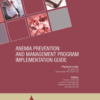![1]()
News
Troponin Leak Portends Poorer Outcomes in Congestive Heart Disease Hospitalizations
June 6, 2016
Clinical question: What is the association between detectable cardiac troponin (cTn) levels and outcomes in persons hospitalized with acute decompensated heart failure (ADHF)? Background: There are millions of ADHF hospitalizations per year, and all-cause mortality and readmission rates are high.
News
Long-Term Mortality Benefits With Coronary Artery Bypass Grafting for Ischemic Cardiomyopathy
June 3, 2016
Clinical question: Does coronary artery bypass grafting added to medical therapy decrease mortality in patients with coronary artery disease and systolic heart failure? Bottom line: Coronary artery bypass grafting (CABG) plus medical therapy decreases mortality as compared with medical therapy al
News
Prior clopidogrel tied to more events in medically treated ACS patients
April 27, 2016
NEW YORK (Reuters Health) - Among medically treated patients with acute coronary syndrome (ACS), prior clopidogrel therapy appears to be associated with more cardiovascular events, researchers have found. As Dr.
News
Higher Risk of Cataracts After Percutaneous Coronary Intervention
April 15, 2016
NEW YORK (Reuters Health) - The risk of cataracts increases after percutaneous coronary intervention (PCI), suggesting the need for eye protection in patients undergoing these procedures, researchers from Taiwan report. Although previous studies have identified a link between occupational radiati
News
Study Finds: Blood Pressure Medication and Stain Cholesterol Fighter Decreases the Risk of Heart Attack and Stroke in Patients with Hypertension and Moderate Risk of Heart Disease
April 13, 2016
(Reuters) - Patients with hypertension and moderate risk of heart disease slashed their long-term risk of heart attack and stroke 40 percent by taking a blood pressure medication as well as a statin cholesterol fighter, according to a large global study that could change medical practice. Results
News
Heart Disease Rates Have Dropped but Vary Widely by Region
March 31, 2016
(Reuters Health) - Over the last 40 years, heart disease rates have dropped in the U.S.
![1]()
News
No Mortality Benefit to Cardiac Catheterization in Patients with Stable Ischemic Heart Disease
March 28, 2016
Clinical question: Can cardiac catheterization prolong survival in patients with stable ischemic heart disease? Background: Previous results from the COURAGE trial found no benefit of percutaneous intervention (PCI) as compared to medical therapy on a composite endpoint of death or nonfatal myoca
News
Study Suggests Growing Up in a Stress-Free Environment Lowers your Risk of Heart Attacks
March 23, 2016
(Reuters Health) - Kids who live in a stress-free environment may grow up to be adults with a lower risk of heart attacks than their peers who experience social, emotional or financial difficulties during childhood, a Finnish study suggests. Researchers assessed psychosocial factors in 311 kids a
News
Questions Have Been Raised about Potential Risks from Using Abbott Laboratories’ Novel Coronary Stent
March 21, 2016
(Reuters) - U.S. government scientists have raised questions about the potential risks to patients of heart attacks and blood clots from Abbott Laboratories' novel coronary stent that dissolves after it is implanted. Abbott is seeking U.S.
![1]()
News
New Clinical Guides Available on Anemia, Congestive Heart Failure
March 17, 2016
SHM’s implementation tool kits provide hospitalists the information and tools they need to lead quality improvement projects on specific clinical topics, including two recent releases focused on anemia and congestive heart failure. One third of the world’s population suffers from anemia, and SHM’


